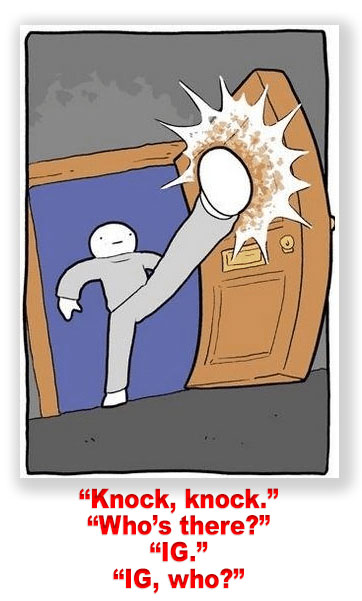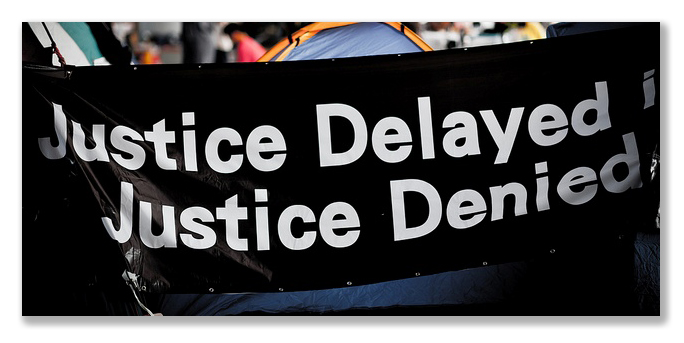We post news and comment on federal criminal justice issues, focused primarily on trial and post-conviction matters, legislative initiatives, and sentencing issues.

TRICK OR TREAT
Trick – Tomorrow is November 1st, and you know what happens then…
Nothing.
 I get emails all the time asking me about new laws supposedly becoming effective on November 1. One hopeful prisoner wrote last week, asking me to send him all the changes in 18 USC § 924(c) taking effect tomorrow.
I get emails all the time asking me about new laws supposedly becoming effective on November 1. One hopeful prisoner wrote last week, asking me to send him all the changes in 18 USC § 924(c) taking effect tomorrow.
I was tempted to send a blank email back to him, but I have written so often about the myth of November 1st. If he hadn’t gotten it by now, a blank email would just have him blaming the Bureau of Prisons’ clunky email system for stripping the message of hope out of my response.
So, one more time: Nothing happens tomorrow, except that last May’s announced Guideline amendments become effective. None of those changes are retroactive, so nothing in the changes will benefit people who have already been sentenced.

Treat – The Dept of Justice and other law enforcement agencies on Monday morning raided (“conducted a sweep,” The New York Times said) of MDC Brooklyn.
 The DOJ Office of the Inspector General led the operation, which included DEA and FBI agents. Donald Murphy, a spokesman for the Bureau of Prisons, said in a statement that “the operation was preplanned and there is no active threat” at the prison, where around 1,200 people are held, including Sean Combs, known as Diddy, and Sam Bankman-Fried.
The DOJ Office of the Inspector General led the operation, which included DEA and FBI agents. Donald Murphy, a spokesman for the Bureau of Prisons, said in a statement that “the operation was preplanned and there is no active threat” at the prison, where around 1,200 people are held, including Sean Combs, known as Diddy, and Sam Bankman-Fried.
Murphy said the BOP had been involved in the planning. He said the action was “designed to achieve our shared goal of maintaining a safe environment for both our employees and the incarcerated individuals housed at MDC Brooklyn.”
MDC Brooklyn has the dubious distinction of being so bad that judges have conditioned prison terms on defendants not being designated to the facility.
The New York Times, U.S. Officials Sweep Troubled Brooklyn Prison Where 2 Were Killed (October 28. 2024)
Associated Press, Authorities launch ‘interagency operation’ at federal jail in New York housing Sean ‘Diddy’ Combs (October 28, 2024)
Trick – In 2022, 18 USC § 2243(c) passed, making it illegal for someone acting as a federal law enforcement officer to knowingly engage in a sexual act with someone in federal custody. A Government Accountability Office report last week told Congress that no one has been charged or convicted since the law passed.
The Report somewhat hopefully chalked up the nonuse of the new statute to several anodyne factors:
First, individuals cannot be charged for prohibited conduct that occurred prior to the provision’s effective date of October 1, 2022. Second, it can take several years from the time of an alleged incident to the filing of a criminal case to a disposition of the criminal case. Finally, according to an official from DOJ’s Office on Violence Against Women, many victims do not report sexual abuse immediately due to a variety of factors, including fear of retaliation.
What a relief! I thought for a minute there might be a deliberate failure to root out violations.
GAO 25-107684, Federal Law Enforcement: Criminal Sexual Acts while Serving in Official Capacity (October 21, 2024)

Treat – In August 2019, Tamir Abdullah, a defendant serving a federal crack cocaine sentence, moved for a sentence reduction under Section 404 of the First Step Act (the retroactive Fair Sentencing Act). The district court denied the motion a swift 4-1/2 years later.
 Last week, the 6th Circuit upheld the denial but spared no words in its condemnation of U.S. District Court Judge John Adams (N.D. Ohio), a judge who is so bad that the 6th Circuit once ordered him to undergo a mental health examination:
Last week, the 6th Circuit upheld the denial but spared no words in its condemnation of U.S. District Court Judge John Adams (N.D. Ohio), a judge who is so bad that the 6th Circuit once ordered him to undergo a mental health examination:
Although we grant district courts broad discretion in managing their own dockets, we look unfavorably upon lengthy, unjustified, and inexplicable delays on the part of district courts in deciding cases… We see no reason in the record to justifiably explain why the district court took 1,625 days to resolve a straightforward sentence-reduction motion… Nor was the order finally issued by the district court adequate. That gravely flawed order failed to analyze Abdullah’s sentence-reduction motion under the multi-step test… and instead ruled on an argument—entitlement to compassionate release due to the COVID-19 pandemic—that Abdullah’s motion plainly did not advance.
The criticism is reminiscent of similar complaints about U.S. District Judge Timothy Black (S.D. Ohio) last winter. It cannot be said too often that a sentence reduction motion that sits undecided is sometimes worse than no remedy at all.
United States v. Abdullah, Case No 24-3093, 2024 U.S. App. LEXIS 26639 (6th Cir. Oct 22, 2024)

– Thomas L. Root

